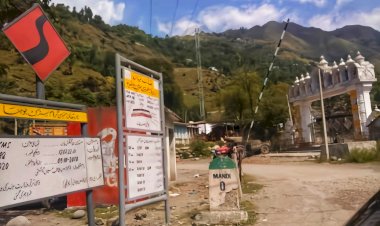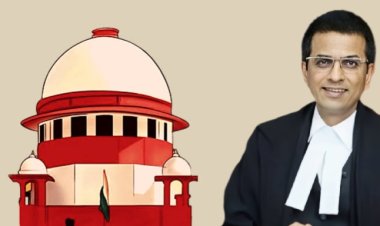Mahra Village: A Tale of Unfinished Roads and Broken Promises Under PMGSY

Roads have always been the lifeblood of a nation, connecting its various regions, facilitating trade, and promoting socio-economic development. One such remarkable initiative to enhance connectivity and uplift the lives of millions was the Pradhan Mantri Gram Sadak Yojana (PMGSY) launched in the year 2000. The scheme aimed to connect all unconnected habitats, focusing on poverty alleviation, education, healthcare, and overall socio-economic development. Over the years, PMGSY has been largely successful in achieving its objectives, with a significant percentage of planned habitations now having all-weather road access. However, one unfortunate case that stands out is the village of Mahra, situated along the Mughal Road, which remains disconnected despite a sanctioned road project.
Mahra village, with its picturesque landscape and vibrant community, had high hopes when a 5 km long road and a 50-meter-long bridge were sanctioned under PMGSY to connect it with the main road. The construction work commenced in 2018, and the initial stages brought joy to the people, as they envisioned a brighter future with improved access to opportunities. However, this optimism soon began to fade when certain crucial issues emerged during the construction process.
One of the most concerning aspects was the deviation from the specified alignment in the Detailed Project Report (DPR). The road's steep slope and unevenness posed a significant risk to the safety of travelers, making it a hazardous path to navigate. Such deviations from the DPR not only compromise the quality of the road but also raise serious questions about the adherence to professional standards in the construction process.
Moreover, the lack of proper drainage systems and protection walls exacerbated the situation. A single rain would wash away portions of the road, turning it into a drain that flooded nearby fields, resulting in loss of land and crops for the local population. This not only hindered progress but also affected the livelihoods of the villagers, who were expecting improved access to markets and better economic prospects with the completion of the road.
Adding to the dismay of the villagers was the tardy progress of the construction work. Despite the passage of more than five years, the road and the bridge are nowhere near completion. The construction pace seems to be moving at a snail's pace, raising doubts about the commitment of the contractors towards timely execution. Attempts to contact the contractors yielded no positive response, and instead, they offered vague and unconvincing excuses, leaving the villagers disillusioned.
To address this pressing issue, a thorough inquiry must be initiated to identify the root causes of the delays and deviations from the DPR. The responsible contractors must be held accountable for their negligence and lack of dedication towards completing the project on time. Additionally, the concerned authorities need to step in and ensure that the project is back on track, adhering to the original specifications and timeline.
The case of Mahra village serves as a stark reminder of the importance of transparency, accountability, and commitment in developmental projects. While PMGSY has achieved significant success overall, it is imperative to recognize and address isolated cases like Mahra to ensure that no community is left behind in the journey towards progress and prosperity.
At last, roads indeed form the backbone of a nation, fostering development and prosperity. The PMGSY scheme has made commendable progress in connecting unconnected habitats, but the situation in Mahra village calls for urgent attention. By rectifying the issues in the construction process, addressing the deviations, and ensuring proper drainage and protection, we can uphold the spirit of inclusive development that PMGSY aspires to achieve. Mahra and villages like it deserve the transformative power of well-constructed roads, and it is the responsibility of the government and the contractors to fulfill this promise. Only then can we truly claim that we have harnessed the potential of roads as the lifeline of our nation.










